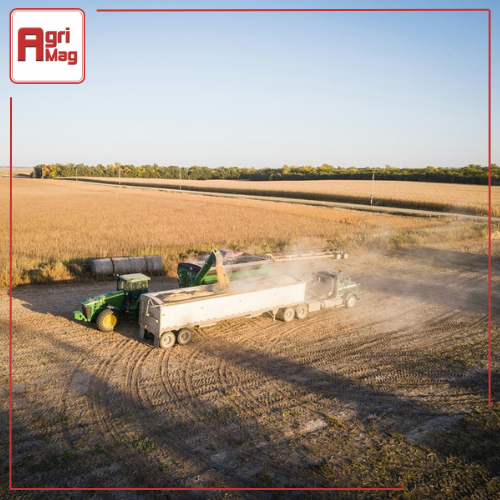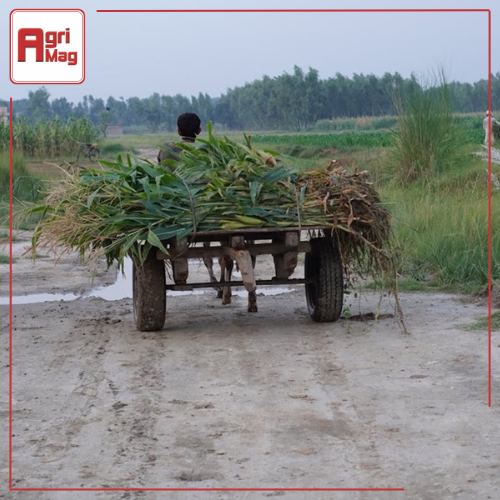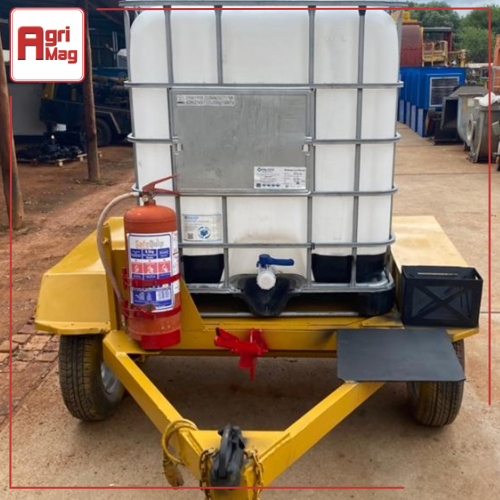
Safety Guidelines and Maintenance Tips for Agricultural Trailers
Date: 19/12/2023
Start your search for used trailers for sale on AgriMag, the perfect starting point for those looking to invest in their agricultural operations. Ensuring the longevity and safety of these crucial pieces of equipment requires adherence to a set of maintenance tips and safety guidelines. Agricultural trailers play a pivotal role in the productivity and efficiency of farming operations. They are subjected to harsh conditions, heavy loads, and long hours of operation. Regular maintenance is not just about extending the life of your trailer but also about ensuring the safety of its operators and the protection of valuable crops or equipment it transports. This article delves into the essential maintenance tips for agricultural trailers, aimed at keeping them in optimal working condition.
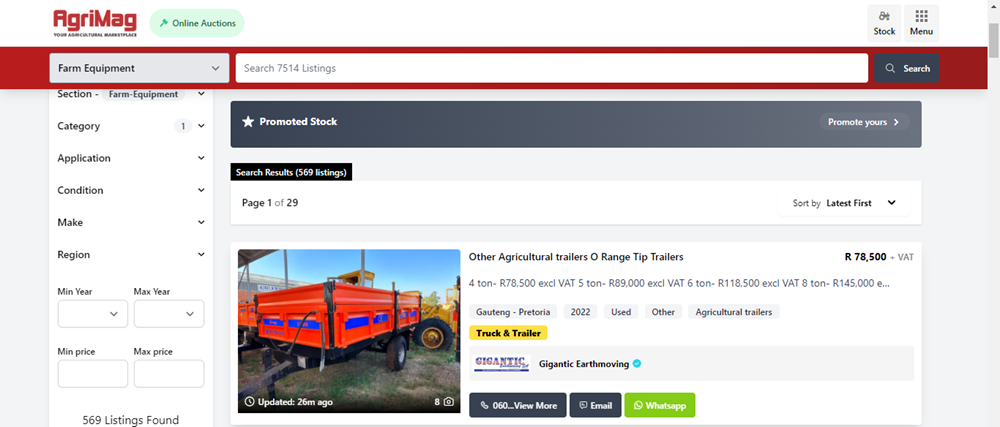
Essential Maintenance Tips for Agricultural Trailers
Regular Inspections and Cleaning
The foundation of good trailer maintenance is regular inspections and thorough cleaning. Dirt, debris, and residues can not only corrode metal parts but also hide potential issues like cracks or weld breaks. After each use, especially if the trailer has been used to transport corrosive materials like manure or chemical fertilisers, it's crucial to clean it thoroughly. Regular inspections should include checking for physical damage, tyre wear and pressure, the condition of the brakes, and the integrity of the trailer’s frame and body.
Tyre Maintenance
Tyres are critical components that bear the brunt of the load and the road. Check the tyre pressure regularly, as incorrect tire pressure can lead to blowouts, uneven wear, and reduced fuel efficiency. Also, inspect tyres for signs of wear or damage and replace them when necessary. Keeping an extra set of tyres can prevent downtime during critical farming operations.
Lubrication Is Key
Proper lubrication reduces friction in moving parts, preventing wear and tear. Components such as wheel bearings, axles, and any pivot points should be lubricated regularly to ensure smooth operation. Use the type of grease or oil recommended by the trailer manufacturer for the best results.
Brake System Maintenance
The brake system is essential for the safety of the trailer, especially when transporting heavy loads. Regularly check the brake pads, discs, and fluid levels. Any signs of wear or leaks in the hydraulic system should be addressed immediately. Remember, a failure in the brake system can lead to catastrophic accidents.
Electrical System Checks
Lighting and electrical systems are not only a safety requirement but also a legal one. Regular checks should ensure that all lights, including brake lights, turn signals, and reflectors, are in working order. Wiring should be inspected for signs of wear, corrosion, or damage, and any faults should be repaired promptly to avoid safety hazards.
Frame and Body Inspections
The frame and body of the trailer should be inspected for structural integrity. Look for signs of rust, corrosion, or damage that could compromise the trailer's strength and safety. Treat any rust spots immediately to prevent further corrosion. In areas with severe weather conditions, consider applying a protective coating to the trailer’s body to protect against the elements.
Load Capacity Adherence
Always adhere to the manufacturer’s recommended load capacity. Overloading the trailer can lead to significant safety risks, including tire blowouts, brake failure, and structural damage. Understanding and respecting the load capacity ensures the safety of the operator and prolongs the life of the trailer.
Emergency Kit
Ensure your trailer is equipped with an emergency kit that includes basic tools, spare tires, fuses, and warning triangles. Being prepared for minor repairs or breakdowns can significantly reduce downtime and prevent accidents.
Professional Servicing
While regular self-maintenance is crucial, certain aspects of trailer maintenance should be left to professionals. Annual check-ups by a qualified mechanic can identify issues that may not be obvious to the untrained eye. These professionals can also perform more complex repairs and maintenance tasks, ensuring your trailer remains in top condition.
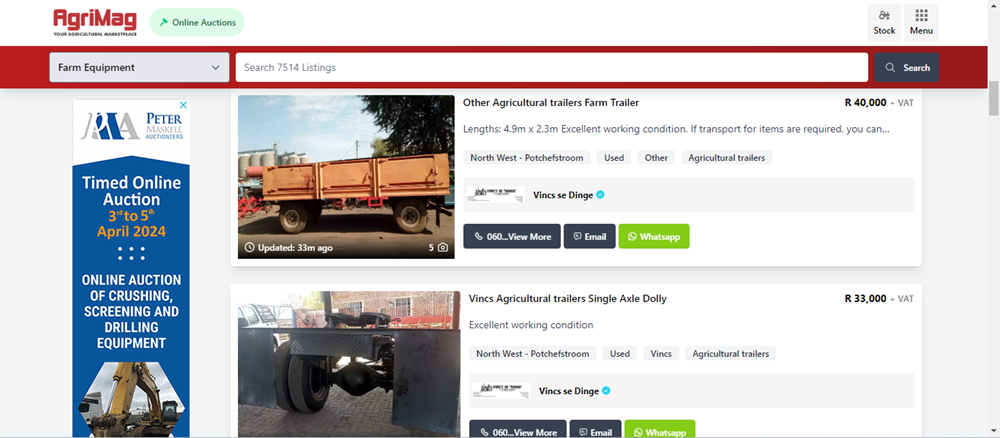
How These Trailers Can Be Utilised on the Farm and the Advantages they Bring:
- Versatility in Farm Tasks
Agricultural trailers are incredibly versatile, capable of performing various tasks across different stages of farming operations. From transporting harvested crops and livestock to hauling fertilisers, pesticides, and equipment, these trailers serve as reliable workhorses on the farm. Their adaptability allows farmers to streamline processes and tackle diverse agricultural activities with ease.
- Increased Efficiency
By efficiently transporting heavy loads of crops, livestock, or inputs, agricultural trailers help farmers optimise their workflow and minimise downtime. With the ability to carry large volumes in a single trip, these trailers reduce the need for multiple journeys, saving time and labor. This increased efficiency translates to higher productivity and improved overall farm management.
- Cost-Effectiveness
Investing in quality farming trailers can lead to long-term cost savings for farmers. By maximising load capacity and minimising fuel consumption through optimised trips, these trailers help reduce operational expenses. Moreover, properly maintained trailers are less prone to breakdowns and repairs, further lowering maintenance costs and enhancing the return on investment.
- Enhanced Harvesting and Transport Logistics
During harvest seasons, farm trailers play a pivotal role in efficiently collecting and transporting crops from the field to storage or processing facilities. Their large capacity and robust construction enable farmers to handle large harvest volumes effectively, preventing delays and ensuring timely delivery. Properly equipped trailers with features like hydraulic lifts or adjustable sides further facilitate loading and unloading, streamlining the logistics process.
- Soil Conservation
Agricultural trailers contribute to soil conservation efforts by minimising soil compaction during field operations. Compared to heavier machinery, trailers distribute weight more evenly, reducing the impact on soil structure and fertility. This preservation of soil health is crucial for sustaining long-term agricultural productivity and minimising environmental degradation.
- Flexibility in Terrain and Conditions
Whether navigating through rough terrain, muddy fields, or narrow pathways, agricultural trailers are designed to handle diverse environmental conditions. Their sturdy construction, coupled with features like high clearance and durable tyres, enables them to operate effectively in challenging landscapes. This flexibility allows farmers to continue their operations even in adverse weather conditions, ensuring continuity in farm activities.
Overall, maintenance is crucial for the longevity and safety of agricultural trailers. Start your search for used trailers for sale on AgriMag, but remember, the value of a trailer is not just in its purchase price but also in how well it is maintained. By following these maintenance tips for agricultural trailers, you can ensure that your investment remains productive and safe for years to come. Regular maintenance not only extends the lifespan of your trailer but also safeguards your operations, making it a critical aspect of agricultural management.
Categories:
Common category
Category Search:
Latest articles:

Top Irrigation Tips for Farmers Facing Water Restrictions

Understanding the Role of Truck Tractors in Logistics

Farming Equipment Upgrades for Small-Scale Farmers in South Africa

